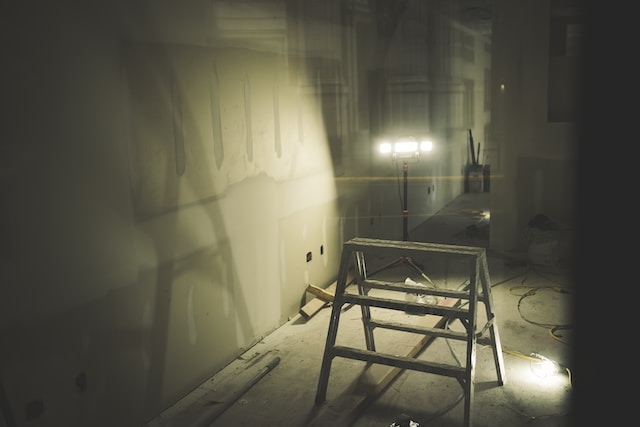Painting Contractor Las Vegas reviews sites in person before beginning work to meet clients, align expectations, and create a business relationship. They also prepare detailed estimates that include all labor and material costs.

Reach out to professional house flippers and real estate agencies to get painting contracts. Leave your card with them and ask for referrals.
A Painting Contractor is a professional who provides services to transform the look of a home or business. Typically, they specialize in a specific aspect of the job such as speciality coatings, wallpaper designs or interior or exterior painting. They also work on larger commercial properties such as offices, warehouses and retail stores. Some also work directly for property owners, while others find jobs through real estate firms and rental agents.
It’s important to choose a Painting Contractor who has experience in your type of project. For example, if you’re looking for a new painter to redo your kitchen, ask them how many projects they’ve completed in that area and how long they’ve been in business. If they’ve been in business for several years, it’s likely that they have an established customer base and a solid reputation in the community.
In addition to asking about experience, it’s a good idea to ask for a list of references from past clients and to read online reviews. While one or two negative comments won’t necessarily reflect on the overall quality of their services, consistently bad reviews should be a red flag. It’s also a good idea to hire a Painting Contractor who is licensed and insured. This will protect you from any damage that may occur during the project and ensure that you’re working with a professional who has the proper skills to complete the job.
Additionally, you should also look for a Painting Contractor who is a member of a trade association. These associations often offer education, training and technical consulting to help their members deliver the highest-quality services. They’ll also have a strong network of peers to turn to for advice when facing challenges on the job.
License
A Painting Contractor is someone who can handle various wallpaper and paint jobs on residential as well as commercial properties. They need to be proficient in multiple painting techniques and have knowledge of different kinds of materials and their chemical compositions, which allows them to suggest the right kind of colour palette combinations for their clients. They also know how to prepare surfaces, perform insulation and maximise the durability of painting projects.
They can be self-employed or work as a sub-contractor for larger companies. In either case, they need to get a business license and insurance coverage to operate. Liability insurance protects them from third-party claims of bodily injury or property damage caused while working on a jobsite. They may also need to obtain a contractor’s license to work in specific areas, such as commercial buildings or residences.
Painting contractors often hire a team of employees to help them with their jobs. They need to train and acquaint these employees to their business standards and methods of operations. In addition, they need to manage payroll and employment taxes for their staff.
Painting projects often require preparation of sites, which may involve clearing rooms or laying down drop clothes to protect furniture. Painting contractors must also consider weather conditions in their respective locations and schedule the projects accordingly.
A good Painting Contractor will keep track of all the equipment they use, from simple painting cans to high-end brushes and coating essentials. They need to devise preventive maintenance practices that will extend the life of their gear. They should also be able to repair and replace broken or damaged equipment. They should also be a member of a professional association, which shows their commitment to the industry and to their community.
Insurance
A fresh coat of paint can do wonders for a home’s market value and overall aesthetic. But running a painting business opens the door to many potential hazards and liabilities. The first insurance policy a painters business needs is general liability, which protects against third-party property damage, bodily injury and libel/slander. For example, if you knock over your paint bucket at a client’s house and it splatters all over their carpet, you’ll need this insurance to cover the repair or replacement costs.
Another type of policy a painting contractor should consider is commercial property coverage, which protects owned or leased business property against theft and damage. It’s important for businesses that store equipment or inventory in a warehouse or office. Some insurance companies offer a package deal that bundles both commercial property and general liability into one policy, called a Business Owner’s Policy (BOP). This can be less expensive than purchasing these policies separately.
If you have employees, you’ll need workers’ compensation insurance, which pays for medical bills and lost wages if an employee is injured on the job. Some clients may require that you carry workers’ comp before they hire your painting company.
Some of the best providers for painters insurance include The Hartford, Nationwide and Next. These companies offer a full range of insurance options and have excellent financial ratings from AM Best, a credit rating agency focused on the insurance industry. The Hartford offers a business owners policy that includes general liability, commercial auto and workers’ compensation insurance for a low price. Next offers same-day quotes and instant COI, plus it allows you to manage your policy through an app. The Hartford also has a good track record of paying claims.
Warranties
A painting contractor can offer many types of warranties to their clients. These warranties can include the ability to repair any work that was not done properly, and may even cover additional carpentry work that was required in order to complete the project. However, before you hire a paint contractor in your area, it is important to understand what these warranties actually cover. Some dishonest contractors may offer a paint warranty that only covers the labor portion of the project, and not the materials used.
Generally, a good painting contractor will provide a full warranty on all of their work. This includes a warranty on the surface preparation as well as the paint job itself. The warranty should be clearly outlined in the contract. In addition, the contractor should have a clear procedure for handling any warranty claims that might arise after the project has been completed.
It is also important for a painting contractor to have adequate insurance coverage. This should include a million dollar limit in liability coverage and workmen’s compensation. It is also important to check whether the contractor’s insurance has been updated recently. Some contractors will try to avoid buying the necessary insurance by simply claiming that they are self-employed.
Painting contractors typically employ a team of people to perform the construction and painting jobs. In addition to directing the work of their employees, these professionals are responsible for managing equipment, invoicing and marketing. They must also be knowledgeable about how to estimate projects, create convincing presentation decks for proposals and collect testimonials from past customers. In addition, these contractors should be aware of the local laws and regulations regarding construction work.
Customer Service
Painting contractors must be able to communicate with their customers effectively. They must be able to understand what the customer needs and offer solutions that fit their budgets. This also means providing timely quotes. It is essential to ensure that a customer knows how long the job will take so they can plan accordingly. In addition to communicating well with customers, painters must be able to provide high-quality work. A slight mistake can ruin a reputation and lead to lost business.
Painting companies can use a variety of marketing strategies to attract new customers. These may include advertising on social media, creating a website, or listing their services in online directories. They can also use field service management software to track customer leads and improve their customer experience. They can also attend networking events or conventions to meet other contractors and build relationships that may lead to future painting contracts.
